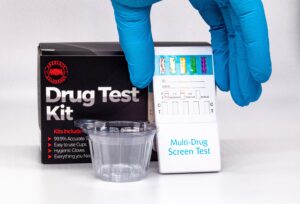Roadside Drug Tests Are Not Always Right
Roadside drug tests are one of the most common sources of evidence used to convict defendants on drug charges, but how accurate are they? Over 350,000 people are behind bars for drug offenses, but many have been charged, convicted, and incarcerated unlawfully based on inaccurate readings from roadside tests.
In the last 10 years, courts have overturned more than 131 cases when additional laboratory tests revealed that the substances flagged on a roadside test were actually legal substances.
The truth is that many things can produce a false-positive result on these roadside tests. Such tests are made to produce rapid results, but they are far from being accurate. Even the presence of certain foods, like chocolate, can test positive for serious drugs, like heroin and methamphetamines.
What Does a Roadside Drug Test Do?
Using a sample from someone’s breath, saliva, or urine, these tests are meant to quickly reveal whether there are illegal substances present in a person’s system.
These tests can also be used to check for the presence of illegal drugs on certain materials as well, such as scraps of paper. Roadside drug testing helps officers quickly determine if you are driving under the influence, but they are not completely foolproof.
Research shows that as much as 24% of positive roadside drug tests are wrong. This means thousands of people each year can be falsely accused of driving under the influence or of possessing illegal substances.
Even though most courts do not recognize saliva tests as admissible evidence, countless people still find themselves being arrested and charged with crimes.

How Do New Jersey Drug Recognition Experts Impact Criminal Law?
In the state of New Jersey, police officers known as drug recognition experts are often called upon as expert witnesses in court. However, in 2023, Chief Justice Stuart Rabner reported that the court must be able to determine if the testimonies of these officers are reliable before they can be called upon as expert witnesses.
Because even a comprehensive field sobriety test can be inaccurate, it’s important for the court to recognize the risk of error, as well as the potential consequences a wrongful arrest or charge can have on a person’s life.
Previously, the Frye standard was used to justify the testimonies of drug regulation experts in New Jersey courts. Under this standard, evidence was considered admissible as long as it was generally accepted by the scientific community.
But with the perspective on roadside tests changing, the court is demanding a higher standard for reliability.
This change can make the difference between being found guilty or innocent for many people. Field tests, combined with the results of a roadside drug test, cannot always determine whether someone was under the influence of illegal drugs while driving. Only a blood test can definitively prove whether someone has a drug in their system, but the half-life of that drug is also an important consideration.
Taking all of this into account, there is a lot of gray area that can impact a person’s case in a New Jersey court for a drug offense. The best thing to do if you have been accused after failing a roadside test is to reach out to a Morristown criminal defense lawyer.
The Issues With Roadside Drug Tests
False-positives are common in rapid roadside tests, and people can even be flagged for driving under the influence if they have a prescription medication in their systems. There are also cases in which inaccurate or even inconclusive tests have been used to make arrests and convict people of crimes.
While you can appeal after being convicted, the long-term implications of the arrest and charge can have serious consequences on your life. From the emotional distress you and your loved ones experience to the financial hardship, the effects of an inaccurate drug test and wrongful arrest or conviction can be life-altering.
Because there is no other way to confirm the presence of drugs in someone’s system, the tests will remain commonplace in law enforcement. This means that people have to take additional precautions to ensure they are not wrongfully stopped or tested, but they only have so much control over this.
If you or a loved one have been wrongfully charged with a drug crime, there is help available. Gregg Wisotsky is a Morristown criminal defense lawyer committed to protecting your legal rights. Please contact our law firm today to schedule a consultation with him.













Leave a Reply